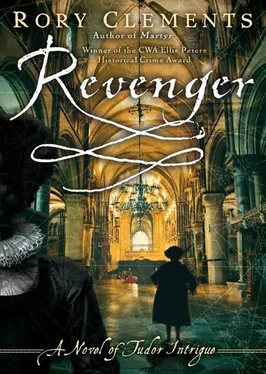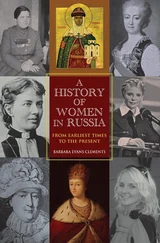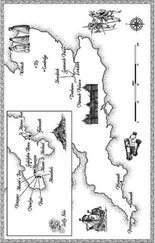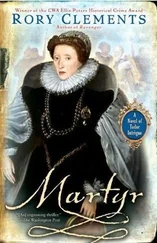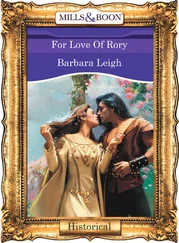As he looked around the hall, Shakespeare saw faces of great fame: Essex was at the center of things, surrounded by a pack that included the Earls of Southampton and Rutland; the brothers Francis and Anthony Bacon; the dashing and dangerous Sir Henry Danvers and Gelli Meyrick-all known to be his close associates at home and on the field of battle. Somewhere in the distance, too, he saw Charlie McGunn, conversing like a conspirator with Essex’s straight-backed military aide Sir Toby Le Neve. Nearby, Essex’s sister Penelope Rich-four years senior to her brother-talked animatedly with the handsome Charles Blount. And then, with a mixture of relief and alarm, Shakespeare saw his own brother, William, in a group that included Essex’s wife, Frances.
On stage, the hag rattled the chains of her monkeys. “I know I have the body of a weak and feeble woman,” she said, her voice ringing out falsetto like some eunuch from the seraglio. The crowd laughed with brazen humor, then the hag’s voice turned deeper, like a market stall holder calling out his wares, and she-or he-threw up her skirts to reveal a pair of bare, hairy legs and a pizzle that would not have shamed a bull. “But I have the balls and prick of a king, and of a king of England, too.”
Shakespeare, horrified, made his way through the crowd of revelers to his brother’s side. He nodded toward the stage and spoke quietly in his ear. “William, I hope this is nothing to do with you.”
His brother raised an eyebrow. “It’s that fool Greene. Look at him over there, preening with his villainous friends as he puts his neck further into the hangman’s halter.”
Shakespeare followed his brother’s eyes. The playmaker Robert Greene was holding court with his mistress Em Ball and various other unsavory characters. This summer revel of Essex’s had certainly brought out a curious array of pleasure-seekers. Will touched him on the shoulder. “Take care, brother.” Shakespeare raised his eyebrows. “And you,” he said softly. He watched as Will wove his way toward Southampton, where he was immediately welcomed by that group. He, in turn, switched his gaze to a settle at the side of the room. Frances, Essex’s pretty mouse of a wife, was there now, sitting alone, fanning herself.
“Mr. Shakespeare, how lovely to see you,” she said as he approached to pay his respects.
He remembered her from her childhood days when, as the well-loved and cosseted daughter of Sir Francis Walsingham, she seemed like a perfect doll, assisting her mother, Lady Ursula, with her embroidery and the running of the family’s households in Seething Lane and Barn Elms. Shakespeare had always liked her quiet ways and vaguely thought that, in a previous age or another place, she could have made a rather splendid Mother Superior in a convent.
“It must be five or six years, my lady.”
“Oh please, Mr. Shakespeare, you always called me Frances as a girl. It seems very strange to me now to be called aught else by you.”
Shakespeare smiled. “As you wish, my lady.” He thought she did not look at all well, very pale and drawn.
“There,” she said. “You see, you cannot even manage a little thing like that.”
“Well, you would have to call me John by way of return, and that might not be at all proper. People might talk.”
She laughed lightly. “Indeed, I had not thought of that. What would the gossips make of such a thing? Do come and sit with me. You are so much taller than me and I feel a little too weak to stand. I have not been well. My mouth burns and my bile is bitter. I see little things in the air, flying things, but my physician tells me they are not there. Do you see them, Mr. Shakespeare?”
Shakespeare sat down, two feet or so from her. “Do you mean bees, my lady, or birds? Or butterflies? Moths, perhaps?”
“No, no. These are lovely little things. They have tiny candles in their wings, which are made of gossamer silk.” She patted the settle next to her. “Though I am not at all well, I do not have the pestilence, Mr. Shakespeare. You may safely sit a little nearer to me.”
He shuffled a bit closer. “My lady, I had not thought such a thing,” he said, though her face did, indeed, look worryingly pale and moist.
“No? Well, many other people nowadays do think so when one has a little summer sweat. If it had been the plague, I fear I would be in my grave by now, for I have been feeling weak and sick for some two weeks and I believe the pest is more like to take a mere three days to kill one off.” She swatted at something in front of her eyes with her fan. “You see, they are everywhere.”
“What are, my lady?”
“The little flying things with the tiny lights. You must see them; do you not think them pretty?”
“I do not see them, my lady,” Shakespeare said slowly.
“Oh well, you are fortunate, then, for though they are lovely to look on, I consider them over-familiar. Dr. Forman says they are sprites and has given me tinctures to ward them off.” She broke off. “Mr. Shakespeare, you are looking at me as if you think me quite mad.”
“I am sorry, my lady. I am a little bewildered. I do not see these little flying things.”
“Well, let us say no more about them. As for the plague, you must burn herbs in all the rooms. You must go from room to room with rue and herb of grace and throw water outside the doors and along the street.” She smiled but it seemed a strain for her. “But I cannot bother with it. I might as well have the plague for all the attention my lord and master pays me. You know, Mr. Shakespeare, it is a curious thing, we were all with child together in this year past. My lord’s sister, Penelope, good Bess Throckmorton-now Lady Ralegh, of course, to the Queen’s disquiet-and my lord and master’s concubine, whom I cannot bear to name, though she stands here in this room. Why, tell me, is it that my own little Walter lived but a few days and died in my arms, while theirs lived? Do you think his spirit lives in the flying things?”
Shakespeare did not know what to say. He knew, of course, of Ralegh’s child and illegal marriage; he knew, too, that the ever fecund Penelope had brought forth a new babe into the world, and he had heard gossip of a bastard born to Essex’s amour Elizabeth Sewell. But the fact of Frances’s new child, and its death, had eluded him. In the end, he merely said, “I am sorry, my lady. The ways of God are mysterious indeed.”
“Yes, they are. And now I might follow my little Wat and lie beside him at All Hallows, for I grow more feeble by the day.” They were silent together. Shakespeare would like to have comforted her, but had no way of doing so. She gave another of her heavy, sickly sighs, then spoke a little quieter, as if imparting a confidence. “Tell me, Mr. Shakespeare, what do you make of the revels?”
He tensed. “They are interesting, my lady.”
“The crowd makes my heart beat so fast I can scarce breathe at times. The revels… I do hope you are not uncomfortable with my question.”
“I confess I have not seen their like.”
“My father, if he were alive, would be in a very dark humor indeed to see such drolleries. I pray that no word of this reach Her Majesty’s ears, for she would take it very ill, I fear. I did not like those monkeys. They were malign.”
“I cannot disagree with you, my lady.”
She patted his hand again. “Still, it is harmless, I am sure. No one could be more devoted to the Queen than my lord of Essex. He would not allow anything untoward.”
Shakespeare knew otherwise, but confined himself to remarking neutrally, “Indeed, your good husband is noted for his close attachment and loyalty to Her Majesty.” He watched as Essex hove into view like an ungainly galleon. The Earl’s white silk and gold thread doublet, heavy with diamonds, pearls, and other stones, glittered in the candlelight so that he quite outshone his wife.
Читать дальше
